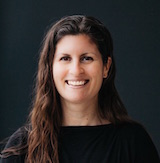We need to recognise individuals as more than simply a patient
 Wife. Scientist. Daughter. Aunt. Friend. Entrepreneur. Volunteer. Advocate. Consultant. Traveller. Person who lives with rheumatoid arthritis. Patient. These are all words I use to describe myself. However, when I enter the healthcare system or am part of a patient based project in a not-for-profit or for-profit environment, I am automatically stripped of all of my identifiers except “patient.” Even though I generally have a few minutes to talk about myself, the only critical points are those related to my disease. I often feel faceless, generic, and simply representative of a “disease class.”
Wife. Scientist. Daughter. Aunt. Friend. Entrepreneur. Volunteer. Advocate. Consultant. Traveller. Person who lives with rheumatoid arthritis. Patient. These are all words I use to describe myself. However, when I enter the healthcare system or am part of a patient based project in a not-for-profit or for-profit environment, I am automatically stripped of all of my identifiers except “patient.” Even though I generally have a few minutes to talk about myself, the only critical points are those related to my disease. I often feel faceless, generic, and simply representative of a “disease class.”
Why am I never known as the whole me, instead of the percentage of me that is so distinctive to me being in those forums? This has made me ponder more and more the reasons why patients are stripped down to their barest, and often least meaningful, descriptor. This is also a descriptor that we haven’t chosen to define ourselves by—through whatever combination of genes and environment, I became a patient one day against my will.
Maybe the label “patient” is the simplest thing when we enter a system or new environment: is it because of time constraints? Is it because of how healthcare professionals are trained? Is it because those other things, such as our work, skills, or how we choose to live our lives, don’t seem to play an important part in terms of why we are in this setting?
I can’t say I blame our healthcare providers—they are busy people, and are often paid by how many individual “patients” revolve through their doors daily (at least that is the case in Canada in many settings). Or maybe it’s because emergency rooms and hospitals are so crowded that it’s easier to desensitise by using the convenient label of patient.
My challenge is that as we talk about “patient centered” or “person centered” care, we start to recognise individuals as more than simply a patient. We are people who live outside of those clinic or hospital walls, and our lives are full of other challenges, passions, and drivers. Those things might not seem important to why I’m in the clinic to check my inflammatory markers. Yet being recognised as a person is critical to my ability to feel safe, to place my trust in healthcare providers, and to opening a richer dialogue, which can help me continue to live my life successfully all while living with an incurable, burdensome disease.
I often wonder how my interactions with healthcare professionals might be different if I were asked, in addition to my physical symptoms, how this affects my everyday life. For example, maybe I am concerned about my abilities to do my job, to interact with my friends, and to be the spouse I want to be. I suspect that taking those extra few minutes to probe this line of thought would change my appointment from being styled after an interrogation to a conversation.
Beyond the healthcare system, I work in the area of patient engagement—including with for-profit and not-for-profit organisations. This is another space where I am constantly challenging people to focus beyond the label of “patient.”
When we ask people to bring their patient experiences to discussions about drug development, research projects, or quality improvement projects, I am often amazed at how people overlook the fact that the “patient” exists in the context of being an individual. I have had people question working with patients in ways that are, quite frankly, unimaginable at times—as if there are only blank thoughts in patients’ heads other than those related to being a patient. I have had encounters where people have questioned whether patients will be capable of collaborating on work, because they didn’t believe that patients would have the skills or knowledge to understand the project. A person has more to contribute than simply their “disease journey.”
I realise that we are slowly moving the needle over time with respect to working with patients. I know this shift in thinking will not be a sudden change. But I implore people to think of themselves and how they would wish to be treated in these situations. We have friends, family, hobbies, education, and careers, and we have so much more beyond our label of patient.
Dawn Richards, PhD, is founder of Five02 Labs Inc, a boutique firm that provides scientific and patient based services to clients.
Competing interests: Five02 Labs’ clients include pharmaceutical companies. Dawn is the vice president of the Canadian Arthritis Patient Alliance, a patient run, volunteer based organisation whose activities are largely supported by grants from pharmaceutical companies.
